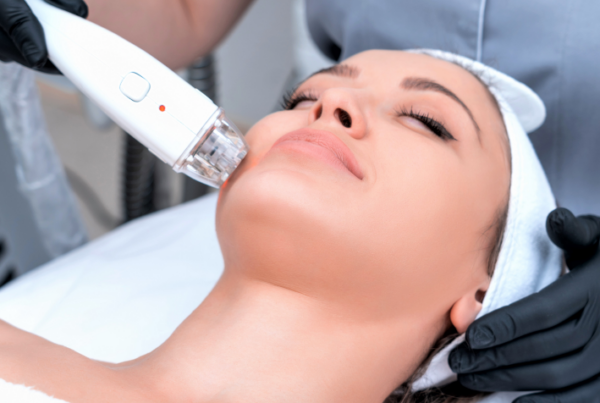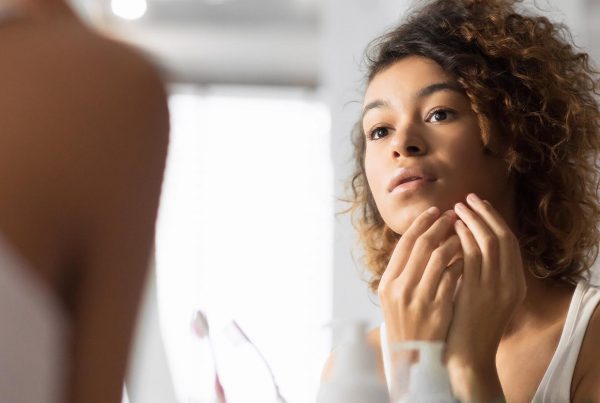
IS IT WORTH SEEING A DERMATOLOGIST FOR ACNE?
Acne is a common yet complex skin condition that affects millions of people worldwide. Although it is usually harmless, some types of acne can cause serious problems such as scarring or permanent damage to your skin.
Acne occurs when oil glands become blocked and produce excess sebum (oil) that clogs pores. This causes inflammation and bacteria to build up inside the pore. The result is blackheads, whiteheads, pimples, cysts and nodules.
If you have acne that‘s severe, painful, persisting or just plain annoying, then you may have thought about seeing a dermatologist. As specialists in all things relating to your skin, talking with a dermatologist can help to figure out what’s actually going on with your skin, the specific factors that could be aggravating it, and ways that you can take care of it.
Let’s take a further look at some frequently asked questions you may find helpful before you decide to consult a specialist.
WILL ACNE GO AWAY IF YOU LEAVE IT ALONE?
Acne plagues a large number of people and is most commonly caused by hormones. It is very often advised by doctors and dermatologists, no matter how tempting or frustrating the irritation may be, to avoid picking and aggravating the skin as much as possible.
As acne is a complex condition and has varying levels of severity, leaving it to heal on its own may not work effectively for everyone who suffers from it. While avoiding picking and aggravating the skin may help prevent further infection or scarring, and allow the acne to clear up on its own for some people, this advice is very rarely successful in permanently clearing acne.
What can a dermatologist do for acne?

Dermatologists often use a combination of physical examination, medical history, and laboratory tests to diagnose and treat acne patients.
The average dermatologist spends up to 12 years or more in training in preparation to treat more than 3,000 different skin conditions. Using their extensive knowledge, a dermatologist will create and administer a treatment plan that you can follow to clear your skin and prevent your acne breakouts from coming back.
Your dermatologist will examine a variety of factors when creating a treatment plan, including:
- The type of acne you have
- Where acne develops on your body
- How long you’ve dealt with acne
- Whether or not you have acne scarring
- The severity of your acne
- Which acne treatments you’ve already used
If you are worried about your acne, we recommend you consult a dermatologist for acne who will provide the best advice on what you can do to stop breakouts and get your skin under control.
When should I see a dermatologist for acne?

If over-the-counter treatments, cleansing and managing your skin hygiene are not having any effect on the condition of your skin, you may need to consider consulting a dermatologist that can prescribe a more aggressive treatment.
Solutions in many acne cases are medical treatments designed to simply suppress the inflammation until the acne disappears. This treatment may include lotions or tablets such as topical retinoids, oral or topical antibiotics or hormone suppression in the form of a contraceptive pill (for females only).
Laser treatments can be used to treat the redness and thread veins which are commonly associated with acne and acne rosacea. Laser treatment for acne works by using a high-powered light that destroys the bacteria which cause redness and acne as well as removing blood vessels. Lasers kill bacteria, stimulate collagen production and reduce the production of sebum from sebaceous glands in the skin. This is a non-invasive and safe treatment. Lasers are also able to revive and rejuvenate the skin, creating small areas of treated tissue amongst the healthy tissue to promote radiant and healthy-looking skin.
Recommended treatments can vary according to your specific diagnosis, which is why it is best to consult a dermatologist for your acne to ensure that your skin becomes as blemish free as possible.
What to expect at a dermatologist appointment for acne

Firstly, be sure that your skin is as clean as possible and try to avoid wearing makeup. This will allow your specialist to diagnose your skin accurately. Here are a few other things to expect on your visit to the dermatologist:
- Medical history – it’s of high importance for your dermatologist to know your medical history so they can treat your acne appropriately. They might ask if there are any over-the-counter acne products you’re using, other products you have used, and any prescriptions you are already taking.
- A Physical Examination
- Expect to be respected – your dignity and privacy will be respected. Your dermatologist is a medical professional and will do everything to ensure that you feel comfortable.
- Expect to get a new prescription – once your dermatologist has examined your skin and attained all of the pertinent information, they’ll likely prescribe an acne treatment medication for you.
- Expect to go for more than one visit – it will take some check-ups to monitor the progression and success of the treatment and to ensure that your physical health is unaffected.
WHY SEEING A PROFESSIONAL MIGHT BE THE BEST OPTION FOR YOU
Although acne is often treated with over-the-counter medications, these treatments don’t always work. There are also other ways to treat acne, such as using special creams, masks, and even laser therapy. If you want to get rid of acne permanently, it’s time to see a dermatologist.
If you would like to speak to one of the consultant dermatologists in our London clinic about appropriate acne treatment for your case of acne, we welcome you to contact us or book a consultation online.
REQUEST A CALL BACK
Please fill in this form and one of our team will give you a call back to arrange a consultation with one of our expert dermatologists.


